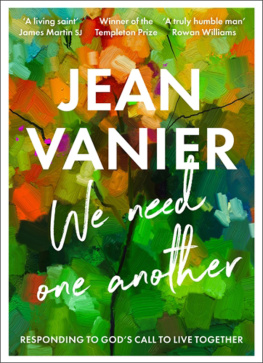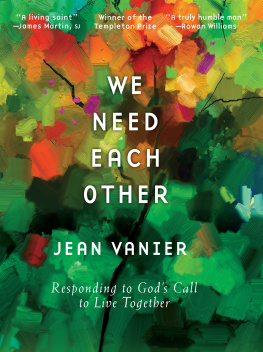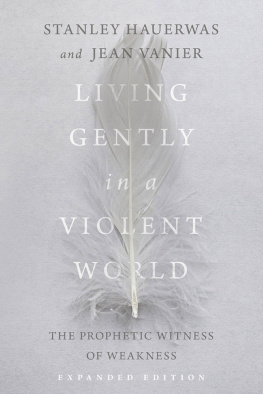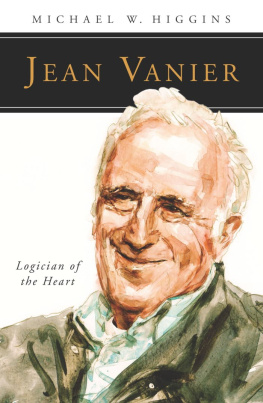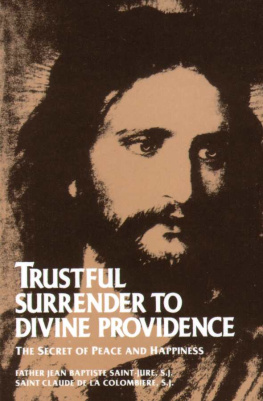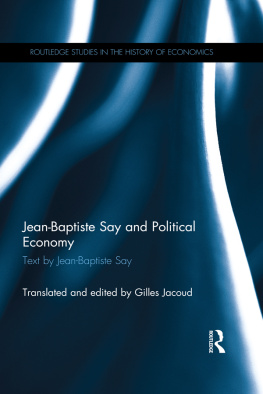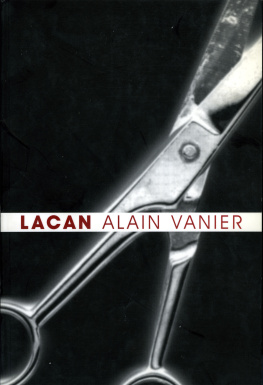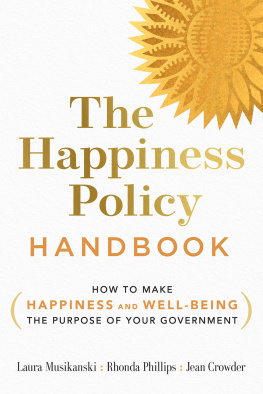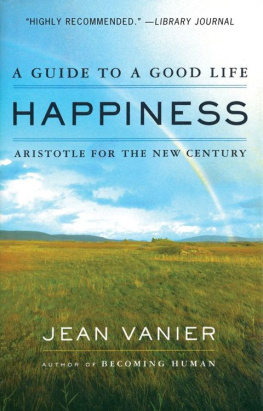Jean Vanier - Made for Happiness
Here you can read online Jean Vanier - Made for Happiness full text of the book (entire story) in english for free. Download pdf and epub, get meaning, cover and reviews about this ebook. year: 2017, publisher: House of Anansi Press Inc, genre: Science. Description of the work, (preface) as well as reviews are available. Best literature library LitArk.com created for fans of good reading and offers a wide selection of genres:
Romance novel
Science fiction
Adventure
Detective
Science
History
Home and family
Prose
Art
Politics
Computer
Non-fiction
Religion
Business
Children
Humor
Choose a favorite category and find really read worthwhile books. Enjoy immersion in the world of imagination, feel the emotions of the characters or learn something new for yourself, make an fascinating discovery.

- Book:Made for Happiness
- Author:
- Publisher:House of Anansi Press Inc
- Genre:
- Year:2017
- Rating:4 / 5
- Favourites:Add to favourites
- Your mark:
- 80
- 1
- 2
- 3
- 4
- 5
Made for Happiness: summary, description and annotation
We offer to read an annotation, description, summary or preface (depends on what the author of the book "Made for Happiness" wrote himself). If you haven't found the necessary information about the book — write in the comments, we will try to find it.
Made for Happiness — read online for free the complete book (whole text) full work
Below is the text of the book, divided by pages. System saving the place of the last page read, allows you to conveniently read the book "Made for Happiness" online for free, without having to search again every time where you left off. Put a bookmark, and you can go to the page where you finished reading at any time.
Font size:
Interval:
Bookmark:
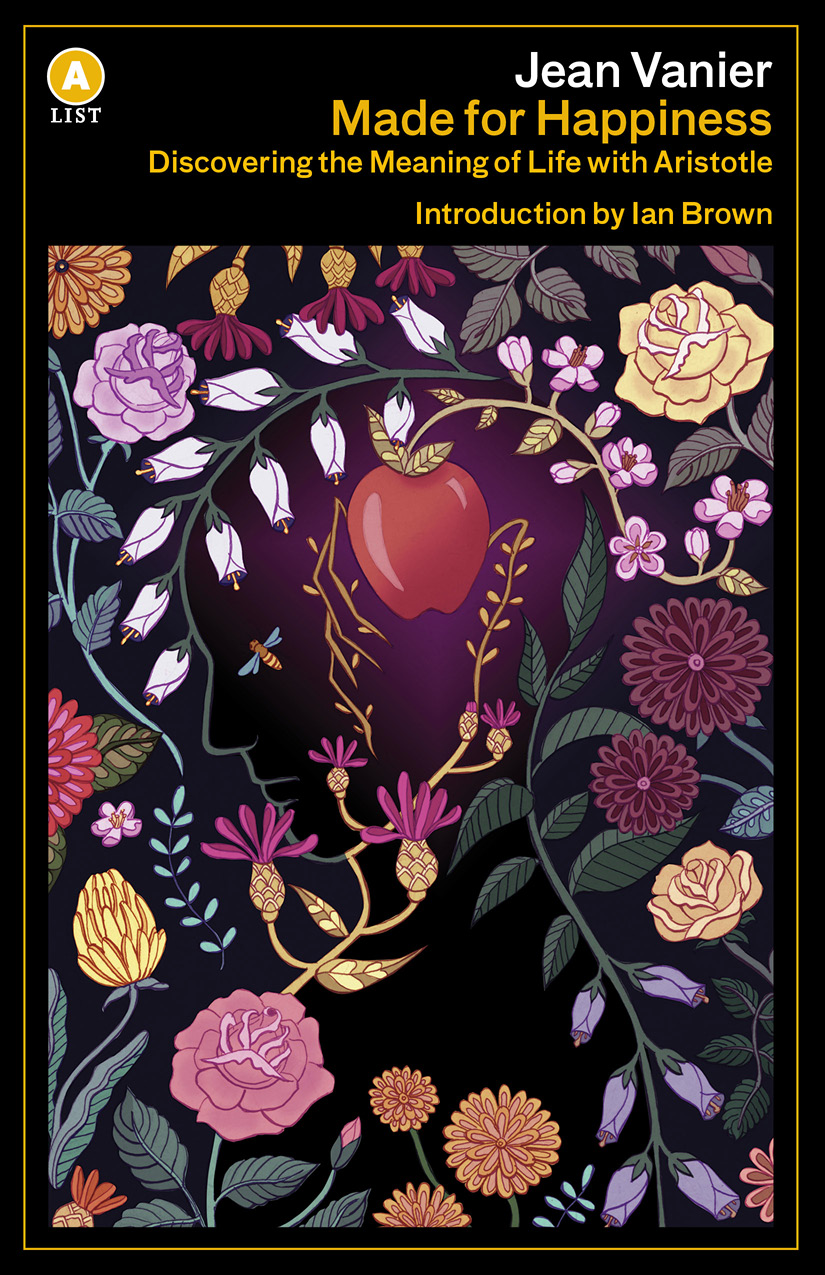
Tears of Silence
An Ark for the Poor
Becoming Human
Community and Growth
Finding Peace
From Brokenness to Community
The Heart of lArche
I Meet Jesus
Jesus, the Gift of Love
Our Journey Home
The Scandal of Service
Seeing Beyond Depression
Discovering the Meaning of Life with Aristotle
JEAN VANIER
Translated by Kathryn Spink

Copyright 2001 Jean Vanier
English translation copyright 2001 Kathryn Spink
Introduction 2017 Ian Brown
All rights reserved. No part of this publication may be reproduced or transmitted in any form or by any means, electronic or mechanical, including photocopying, recording, or any information storage and retrieval system, without permission in writing from the publisher.
Distribution of this electronic edition via the Internet or any other means without the permission of the publisher is illegal. Please do not participate in electronic piracy of copyrighted material; purchase only authorized electronic editions. We appreciate your support of the authors rights.
First published as Le got du bonheur: Au fondement de la morale avec Aristote
in 2000 by Presses de la Renaissance.
First published in English in 2001 by House of Anansi Press Ltd.
First published in the United States in 2002 by Arcade Publishing, Inc.
This edition published in 2017 by House of Anansi Press Inc.
www.houseofanansi.com
The author wishes to thank the publishers and copyright holders of the cited texts
for permission to reproduce their words..
Library and Archives Canada Cataloguing in Publication Data
Vanier, Jean, 1928
[Got du bonheur. English]
Made for happiness : discovering the meaning of life
with Aristotle / Jean Vanier ; translated by Kathryn
Spink. Second edition.
Translation of: Got du bonheur.
Issued in print and electronic formats.
ISBN 978-1-4870-0257-2 (softcover).ISBN 978-1-4870-0258-9
(EPUB).ISBN 978-1-4870-0259-6 (Kindle)
1. Happiness. 2. Aristotle. I. Spink, Kathryn, translator
II. Title. III. Title: Got du bonheur. English
B491.H36V3513 2017 170 C2017-901307-6
C2017-901308-4
Library of Congress Control Number: 2017933804
Series design: Brian Morgan
Cover illustration: Jessica Fortner

We acknowledge for their financial support of our publishing program the Canada Council for the Arts, the Ontario Arts Council, and the Government of Canada through the Canada Book Fund.
M ade for Happiness is a book about a philosopher, Aristotle, written by another philosopher, Jean Vanier, who, unlike Aristotle, also happens to be a living human being. This is an important distinction, as obvious as it sounds. Aristotles philosophy, and his conviction that the purpose of human life is to discover what makes each of us happy a pursuit thats a lot more complicated than it sounds is fixed. His propositions and discourses are among the foundations of Western thought, an essential part of the Western literary canon, but they are established and unchanging. We can interpret his philosophy endlessly and Jean Vaniers close reading of Aristotles work is a beautiful example of philosophical analysis done well, and delicately but Aristotles words are an unchanging entity of the world. All thats left is interpretation.
Jean Vanier, on the other hand, is a living man, one who walks and talks and listens and sees. He is still taking in the data of the world, its facts and fixations, and still figuring out what those data mean. That he can bring established ideas such as Aristotles into convincing register with the changing world as he finds it is a testament to Vaniers openness, his willingness not just to see the world as it is, but to find meaning in its every corner.
Vaniers evolution as a thinker and as the worlds leading philosopher on the subject of disability has been a prime example of his searching flexibility. He was born into a privileged world that offered many prescribed paths to a young man of his interests and talents, paths that were laid out before him from an early age. His devoutly Catholic mother, for instance, was convinced for a long time that he ought to become a priest. Instead he entered a British naval school at the age of thirteen, wanting to serve in the fight against fascism and Nazism. His fathers connections could have led very easily to a distinguished career in international diplomacy. But by the age of twenty-one, Jean Vanier had moved on he was spending more time praying, he once told me, than on ships watch. He had begun to question what he wanted to do with his life, and whether his private goals bore any resemblance to what others told him those goals ought to be.
His questions led him deeper into his Christian faith, and to the study of philosophy and the Ph.D. thesis (Happiness as Principle and End of Aristotelian Ethics) that, years later, germinated into this book. By the early 1960s he was a popular lecturer at the University of Toronto. Another highly regarded career, this time as a scholar in academia, beckoned.
But that didnt feel right to Vanier either. There was something in me that wanted a commitment to people, and not ideas, he once told me in his tiny, book-cluttered house in France, where he lives as part of a community of handicapped people. He began to spend more and more time on the margins of society in prisons near Ottawa, for instance, where he noticed, praying with the inmates, that it was often impossible to tell who was an inmate and who was a visitor. If you truly engage with those around you, distinctions disappear.
In the summer of 1963, with the university year over, he travelled to France to help an old spiritual mentor who was working in an overpopulated institution for intellectually disabled men in the village of Trosly-Breuil, northeast of Paris.
Vanier was frightened at first, as many of the men stuffed behind the institutions walls couldnt speak or survive on their own. But the men themselves, when he ate lunch with them and got to know them, were the opposite of frightening. What touched me, Vanier told me, was that every one of the men had the same questions. Everyone, in one way or another, said do you love me? And, will you be my friend? He was so touched by their gestures and yearning towards friendship the subject that has preoccupied him all his life that Vanier bought a small house, and invited two middle-aged men, neither of whom could speak as a result of their intellectual disabilities, to move in with him, away from the impersonality of the institution down the road. (The house didnt have indoor toilets, however.)
I thought it sounded like a pretty radical move for a guy of proven brilliance in his early thirties. What were you thinking? I asked Vanier.
Well, he said with a smile, a shake of his head, and a shrug, I thought we could have fun. I had a little car, one of those little two-horsepower cars. I thought we could go for drives.
The rest is history. The friendships Vanier made in that house the sense of belonging and acceptance and justice and mission and equality that they engendered made him want to create more of them. From that one house in Trosly-Breuil grew LArche, an international organization of communities for the intellectual disabled that now spans the globe. They are communities of disabled people, but they are, more importantly, communities of friends who welcome anyone in the so-called normal world who wants to be friends as well. It is the most radical community I have ever encountered, a village that is somehow infinitely stronger and more confident than its fragile component parts.
Font size:
Interval:
Bookmark:
Similar books «Made for Happiness»
Look at similar books to Made for Happiness. We have selected literature similar in name and meaning in the hope of providing readers with more options to find new, interesting, not yet read works.
Discussion, reviews of the book Made for Happiness and just readers' own opinions. Leave your comments, write what you think about the work, its meaning or the main characters. Specify what exactly you liked and what you didn't like, and why you think so.

